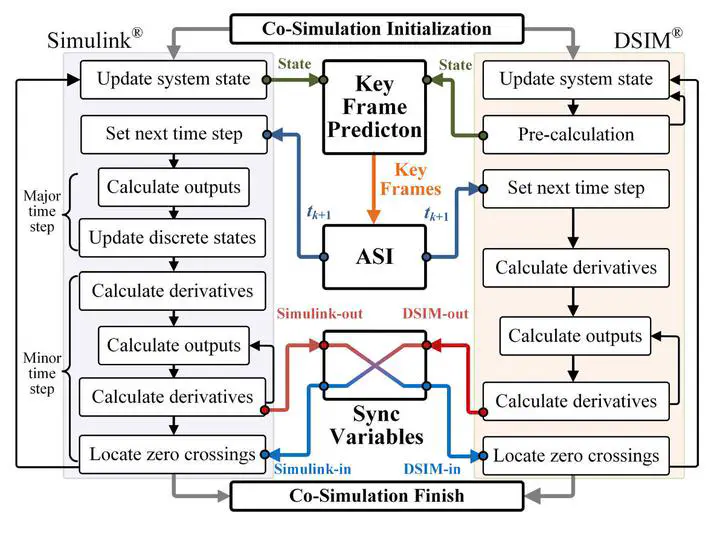Adaptive Synchronization Interface With Key-Frame Prediction Method for Accelerating Power Electronics Co-Simulation

Abstract
The co-simulation is becoming increasingly popular in the analysis and design of power electronic systems (PESs). However, effectively synchronizing system statechanges caused by switches poses a challenge, as the existing methods often incur high-interaction time costs. Therefore, this article introduces an adaptive synchronization interface (ASI), leveraging the discrete-continuous characteristics of PES to minimize the number of synchronization points and accelerate co-simulation. The key-frame prediction algorithm precisely identifies the system state change caused by power electronic switches and the external system. Subsequently, the proposed ASI utilizes the key-frame to dynamically adjust synchronization step size, thereby enhancing the accuracy and efficiency of co-simulation. The ASI is deployed on a co-simulation prototype for Simulink and DSIM. Additionally, a case study involving a 10-kVA modular multilevel converter (MMC) demonstrates alignment with experimental results, the ASI achieving a 394-fold reduction in synchronization time costs, compared to the fixed time-step synchronization interface (FSI) while maintaining accuracy. The proposed ASI presents a promising co-simulation interface for accelerating PES co-simulations.